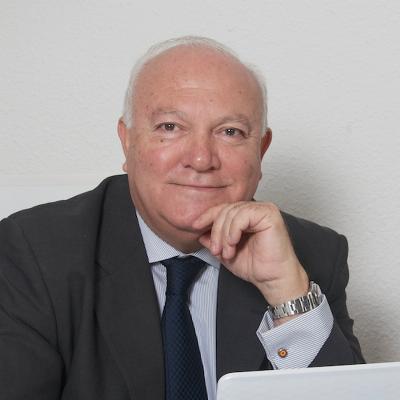"During an event marking International Holocaust Remembrance Day at the United Nations headquarters last month, Israeli Ambassador Gilad Erdan ripped the global body for failing to tackle antisemitism.
‘The U.N. was founded upon the ashes of the Holocaust. It was established to ensure such darkness would never be felt by humanity again,’ the ambassador said, with U.N. Secretary-General António Guterres present. ‘Yet, when it comes to fighting antisemitism, sadly, the U.N. ignores its purpose.
‘When it comes to anything related to Israel, this organization is very quick to respond and condemn. When it comes to Jew-hatred, the silence is deafening,’ Erdan added. ‘The double standard is disgraceful.’...
So what does the man whom the United Nations assigned to tackle the problem think about it? For starters, he told JNS that he doesn’t believe that the U.N. is antisemitic.
‘The Israeli government has played an important role in international relations and has been recognized by the U.N.,’ Miguel Moratinos, U.N. focal point on monitoring antisemitism and enhancing a system-wide response, told JNS.
‘Israel and the Jewish people are integrated in the essence, in the soul of the U.N. So, how is the U.N. going to be antisemitic?’ asked Moratinos. ‘I have to tell you, the U.N. is not antisemitic.’
Moratinos, whose main U.N. function is serving in the senior role of high representative of the body’s Alliance of Civilizations (UNAOC), added that Erdan ‘should have been more positive.’
The antisemitism envoy cited several initiatives that he said made the case that the U.N. is not antisemitic, including a 2022 action plan to combat antisemitism and ongoing UNESCO educational work...
Erdan’s office told JNS that while he didn’t have any direct response to Moratinos’s assertions, Erdan noted that resolutions voted on by member states instructed the U.N. to establish the Holocaust and the U.N. Outreach Programme and hold specific ceremonies.
‘These are not U.N. organizational actions,’ the statement said.
Israel’s mission to the U.N. and Jewish groups have also criticized Moratinos and other U.N. officials for failing to call out antisemitic comments from the U.N. special rapporteur for the Palestinians and members of the U.N. Human Rights Council’s Commission of Inquiry. Last July, Miloon Kothari, a member of the commission, told an anti-Israel website that ‘the Jewish lobby’ largely controls social media companies. Kothari apologized, but Navi Pillay, commission chair, said the quote was taken out of context. (The full interview was published.)
At the time, Moratinos tweeted a broad condemnation of antisemitism, without any specific references to U.N. officials. He stated that the UNAOC ‘remains committed to take a firm stance against antisemitism.’
But the U.N. took no stance—firm or otherwise—when it emerged in December that Francesca Albanese, the U.N. special rapporteur to the Palestinians and a longtime anti-Israel activist, had made antisemitic remarks during the 2014 Israel-Gaza conflict. She said that ‘America and Europe, one of them subjugated by the Jewish Lobby, and the other by the sense of guilt about the Holocaust, remain on the sidelines.’...
When JNS asked whether it was his position that a statute of limitations governs antisemitism, Moratinos said the special rapporteur, like members of the Commission of Inquiry, act independently of the U.N. and are ‘free to say whatever.’...
Part of Moratinos’s mandate is to develop a U.N. action and response plan for antisemitism...Moratinos told JNS the plan will have three parts. The U.N.’s global communications department will continue awareness initiatives, including those related to Holocaust remembrance. UNESCO will continue investing in educational programs, with increased focus on modern antisemitism. And the U.N. will establish an observatory mechanism for antisemitic attacks and for safeguarding synagogues and other Jewish sites...
As he and the U.N. develop a response plan to antisemitism, the disconnect between what Moratinos says he believes and what Israel and Jewish groups see as plain as day may prove exceedingly difficult to bridge."
February 14, 2023
The United Nations' point man on antisemitism refuses to acknowledge or condemn U.N. antisemitism

Miguel Moratinos (File photo courtesy U.N. Photos)
Date
February 14, 2023
Title
The United Nations is not antisemitic, its point man on antisemitism says, Jewish News Syndicate
Author(s)
Mike Wagenheim
Original Source
